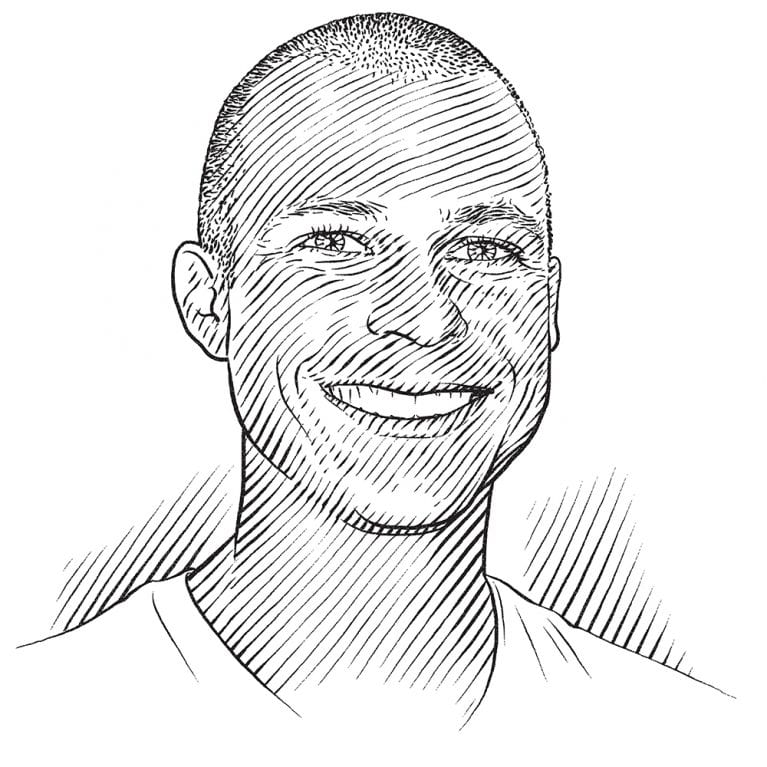Evan Byrnes

Who I am
I am often asked, ‘What made you interested in sharks?’ but I have never been able to nail down a specific time or event that sparked the obsession. As far back as I can remember, and as all of my childhood family stories go, there was never a time when I was not infatuated with sharks and dreaming of becoming a marine biologist.
However, growing up in landlocked Pennsylvania, USA, I had little contact with sharks outside of television and books. I made up for it by roaming local creeks and ponds and keeping home aquaria to get my fill of time with fish. By the age of 13, I had opted to replace my bed with a large saltwater aquarium so that I could watch fish endlessly and learn about how they interact with each other. But this was still not enough to satisfy me, and when it was time for college I jumped at the opportunity to pursue my lifelong dream of becoming a marine biologist.
I moved to Florida to attend the University of Miami and it was during an internship in a shark research lab that I found my calling. When I got back from my very first field research trip, I knew I was going to be a researcher for the rest of my life. Not only could I finally spend every waking moment learning about sharks, but I could use what I learn to help inspire the same passion in others and contribute to conserving shark populations for future generations to appreciate as I have.
From that point on, all my life and job decisions revolved around staying involved with shark research and conservation. One thing led to another and I now find myself lucky enough to be working on my PhD at Murdoch University, Australia, focusing on research using innovative tools to provide insight into the physiology and behaviour of sicklefin lemon sharks.
Where I work
St Joseph is a remote atoll ecosystem located in the Amirante Islands of the Republic of the Seychelles, which boasts a rich abundance of life. From the schools of yellowfin tuna outside the fringing reefs to the islands covered in hermit crabs and nesting shearwaters and terns and to the turquoise lagoon and flats swarming with rays, sea turtles and juvenile sharks, St Joseph is truly spectacular. As a research site, its remoteness limits human impact, allowing us to study how sharks function in undisturbed ecosystems – a rare opportunity in the age of global travel. Unlike in most atolls, St Joseph’s young age is manifested as a completely enclosed lagoon that excludes most large predators and provides a unique nursery habitat for juvenile sharks to flourish in. This access to sharks at all life stages is quite rare and offers the valuable opportunity to study how a shark’s physiology and ecology change over the course of its lifetime.
What I do
Knowing how much space different animals need to survive is central to conservation planning. When it comes to marine animals such as sharks, however, we have a poor understanding of the factors that determine their home range. This is especially true for sharks, where reversing the decline of many species requires spatial management. This project aims to explore how the energetic demands of sharks govern the size of their home range, by using accelerometers to study how sharks use energy throughout different habitats. Accelerometers share the same technology used in popular fitness trackers, such as Fitbits, that measure the activity of people; when calibrated, they can determine the energy demand of individual animals, or sharks in this case. By pairing these ‘fitbits’ for sharks with tags that track their movements, we can tell how and where sharks are using or gaining energy. Additionally, we are using stable isotope analysis and prey surveys to investigate how sharks’ diet and the availability of prey influence shark home ranges. Assessing how these factors govern the size of shark home ranges will help to forecast how environmental change may affect these animals and determine what measures can be taken to improve the design of marine protected areas to better conserve sharks.
